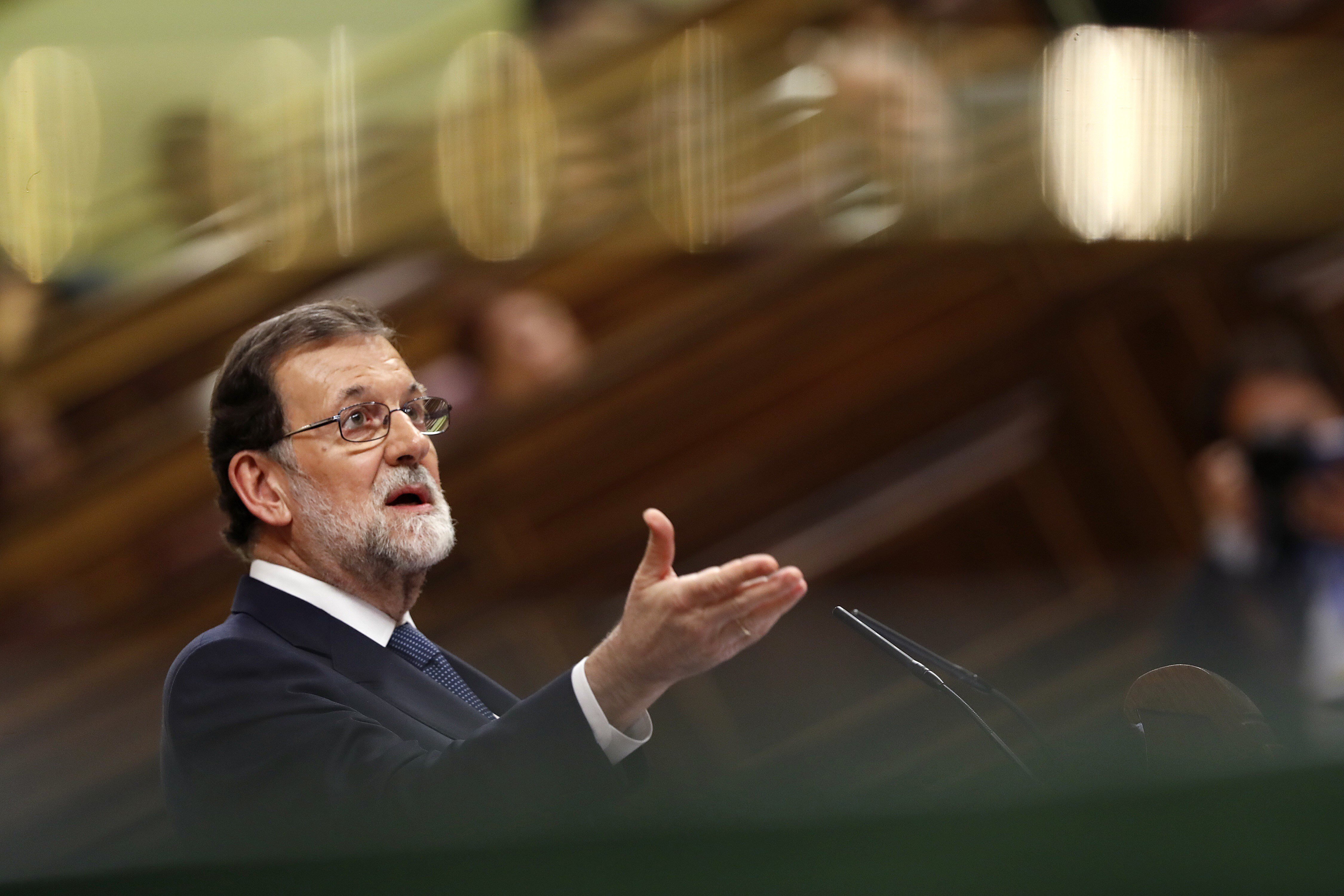The Spanish prime minister, Mariano Rajoy, has replied to Catalan president Carles Puigdemont by letter asking him to rectify his position and return to constitutional legality before Thursday. Otherwise, Rajoy says, he will be "the only one responsible" for the application of article 155 of the Spanish Constitution. Article 155 gives the central government powers to intervene in autonomous communities under certain conditions. Rajoy's response comes because his government believes the Catalan leader hasn't clarified the situation with his calls for dialogue, and his lack of a clear answer as to whether independence has been declared has the same effect as a straight 'yes'.
This was announced by deputy prime minister, Soraya Sáenz de Santamaría, in a press statement at the prime minister's Moncloa palace. "It wasn't very difficult to say yes or no. In a topic as important as this, the only thing called for is clarity," said Santamaría, and that she "didn't understand the obstinacy, the confusion and the perseverance to strain the confusion to the limit". The deputy prime minister insisted that Rajoy is offering an "opportunity to rectify [their actions] and return to the law" as it was before 6th September, when the first Referendum Law was passed.

According to government sources, Rajoy spoke with opposition PSOE (Spanish Socialist Workers' Party) leader, Pedro Sánchez, before sending the letter. In it, he calls in Puigdemont, in the time remaining before the second deadline at 10am on Thursday, to abandon a project which "only benefits those who aim to do away with civil harmony and impose a radical project which would impoverish Catalonia". Now, according to the deputy prime minister, the question is not just to clarify the situation, but to "revoke" the declaration of independence and return "to reason".
Otherwise, article 155 of the Constitution could be applied. According to Santamaría, "it's not for the suspension of self-governance, but for behaviour in accordance with the law, autonomy and constitutional and statutory parameters". Rajoy's letter says that Puigdemont would be the "only one responsible" for such an action, which implies criminal charges could possibly also be relevant. The deputy prime minister said that she wouldn't expound on potential actions to take to not make "the most radical sectors" of the independence movement happy.
In this context, the Spanish executive's position is firm as regards the negotiation its Catalan counterparts insist on, saying it can only take place once they return to the "constitutional law". "Your calls for dialogue in the name of the whole of Catalonia are not credible, when you refuse to speak with part of your society through its representatives", says Rajoy about the opposition in the Catalan Parliament. "As you know, they represent a higher number of citizens in votes", he writes, implying the total of PSC (Catalan branch of PSOE), PP (Popular Party), Ciutadans (Citizens) and CSQP (Catalonia, Yes We Can).
Santamaría used similar rhetoric in her press statement, saying that dialogue "isn't demanded, it's practised". She mentioned Puigdemont's refusal to appear in the Spanish Congress some months ago to present his project. The Catalan government rejected the offer because it would prefer bilateral negotiation, and the Congress offer required the proposal being submitted to a vote. Another offer has come from PSOE and the government for Puigdemont to attend a commission in the lower chamber where an as yet undefined constitutional reform is to be debated within six months.
The deputy prime minister said that it's impossible for any meeting between Rajoy and Puigdemont to take place before Thursday. She also called on the Catalan leader to "stop confusing" the issue, saying that the avoidance of later measures is in his hands. Rajoy underlines his position in his letter saying that the European Union "had expressed a position emphatically against independence", that the 1st October wasn't "a valid consultation" and that he cannot "accept" that it's a "historical conflict between the Spanish state and Catalonia", that instead it's a "conflict of legality".

